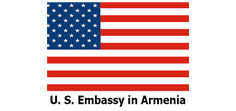On December 22, the Secretary of the Security Council Armen Grigoryan referred to the statement of the opposition deputies on the air of the Public Television that in December of last year the defense ministers of Armenia and Russia had signed a secret document on the withdrawal of Armenian troops in Syunik.
In response to Petros Ghazaryan’s question, Grigoryan stated that the opposition was making discoveries about “facts known to the public” and that the authorities had spoken publicly about “almost all the processes that took place after November 9.”
According to Grigoryan, “the document stipulates that the Republic of Armenia will continue to use that road until it has an alternative one.”
“If I am not mistaken, it was in November, that the construction of an alternative road was completed in the Republic of Armenia, that is, Goris ․․․ after building the alternative Goris-Kapan road, Azerbaijan announced that it was installing customs checkpoints on the road. And I cannot imagine a process that is more obvious than that. “But we have talked about this. It is surprising that the opposition is making discoveries about known facts,” Grigoryan stated.
The facts that the SSC considers “known to the public” were not in fact known at all, at least until the time when the Azerbaijani authorities closed the Goris-Kapan road.
On November 10, Azerbaijan announced that it was setting up customs checkpoints on the Goris-Kapan road sections under Azerbaijani control. On the same day, the Minister of Territorial Administration and Infrastructure announced that the alternative road was ready and that cars could bypass the Azerbaijani customs checkpoints.
Shortly after Azerbaijan’s announcement, Armen Grigoryan gave an interview to the Public TV program “Lurer” noting that Armenia “installs customs checkpoints in the same section of the road,” but since, as it was announced, the Kapan-Tatev road is ready, from there leading either to Goris or Yerevan, we can say we have a safe road.” Grigoryan mentioned that the roads leading to the communities of Syunik region are being improved.
Armen Grigoryan at that time linked the issue of construction of alternative roads with the government’s road construction reform program. He also touched upon this topic the next day, on November 11, in a conversation with journalists after the government session, again without saying a word about the already existing agreement or written agreement. He only mentioned that that part of the road has a “special status”, and RA citizens can cross that road in case of paying taxes.
In the evening of the same day, Armen Grigoryan gave an interview to the Public Television, during which he hinted at the “preliminary agreement” for the first time. “The agreement, in general, was based on the logic that we will use that road until we have an alternative one.”
As can be seen from these statements, the Secretary of the Security Council has repeatedly spoken about the Goris-Kapan road, both during and after the tensions regarding the road, but before the statements of the opposition MPs, he never mentioned any agreement between the then Minister of Defense Vagharshak Harutyunyan and his Russian colleague Sergei Shoigu.
Before the installation of customs checkpoints on the road by Azerbaijan, Grigoryan and the other representatives of the government did not talk about the details of the agreement on the alternative road.
Moreover, in September of this year, speaking about Azerbaijan’s decision to levy taxes on Iranian cars, Prime Minister Nikol Pashinyan spoke at length about the issue, noting that in December 2020 an agreement was reached that the road should be used without hindrance for Armenian vehicles and cargo transit and it was “assumed” that Azerbaijan has started levying taxes, as the agreement did not include the right to free movement of foreign cars.
In other words, Pashinyan, like Armen Grigoryan, referring to almost all aspects of the issue, did not say in any way that the agreements reached were in writing, nor did he mention that after the construction of an alternative road, Azerbaijan can close that part of the Goris-Kapan road.
Finally, it is important how Armen Grigoryan argues for the process to be transparent. In the passage quoted from the last interview, he cites Azerbaijan’s statement on the installation of customs checkpoints as proof of the document’s non-concealment, which has nothing to do with Grigoryan’s other assertion about the public and transparent work style of the Armenian authorities.
Ani Avetisyan

 FACTOMETER
FACTOMETER











